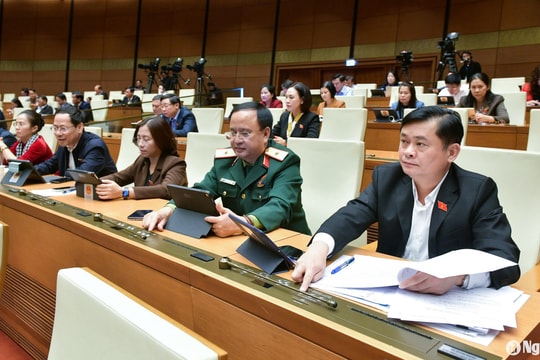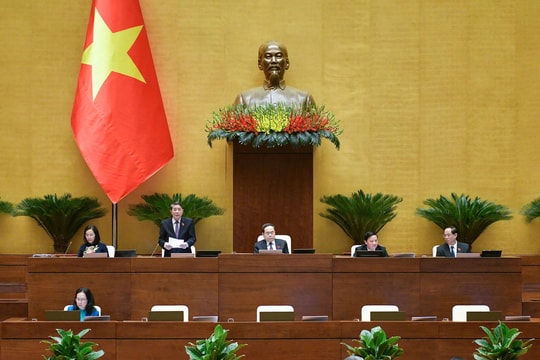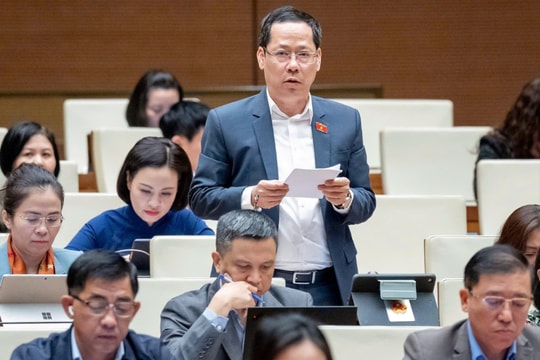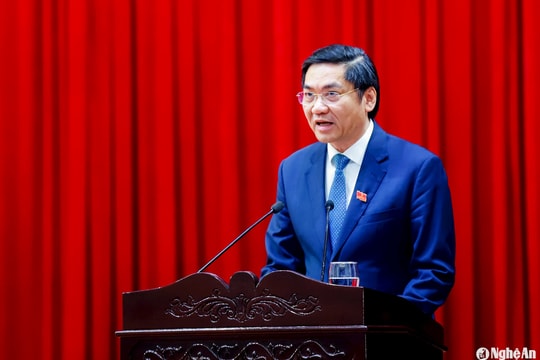National Assembly delegates from Nghe An discuss amendments and supplements to the Law on Technical Standards and Regulations
On the afternoon of November 28, the National Assembly discussed in the hall the draft Law amending and supplementing a number of articles of the Law on Technical Standards and Regulations.
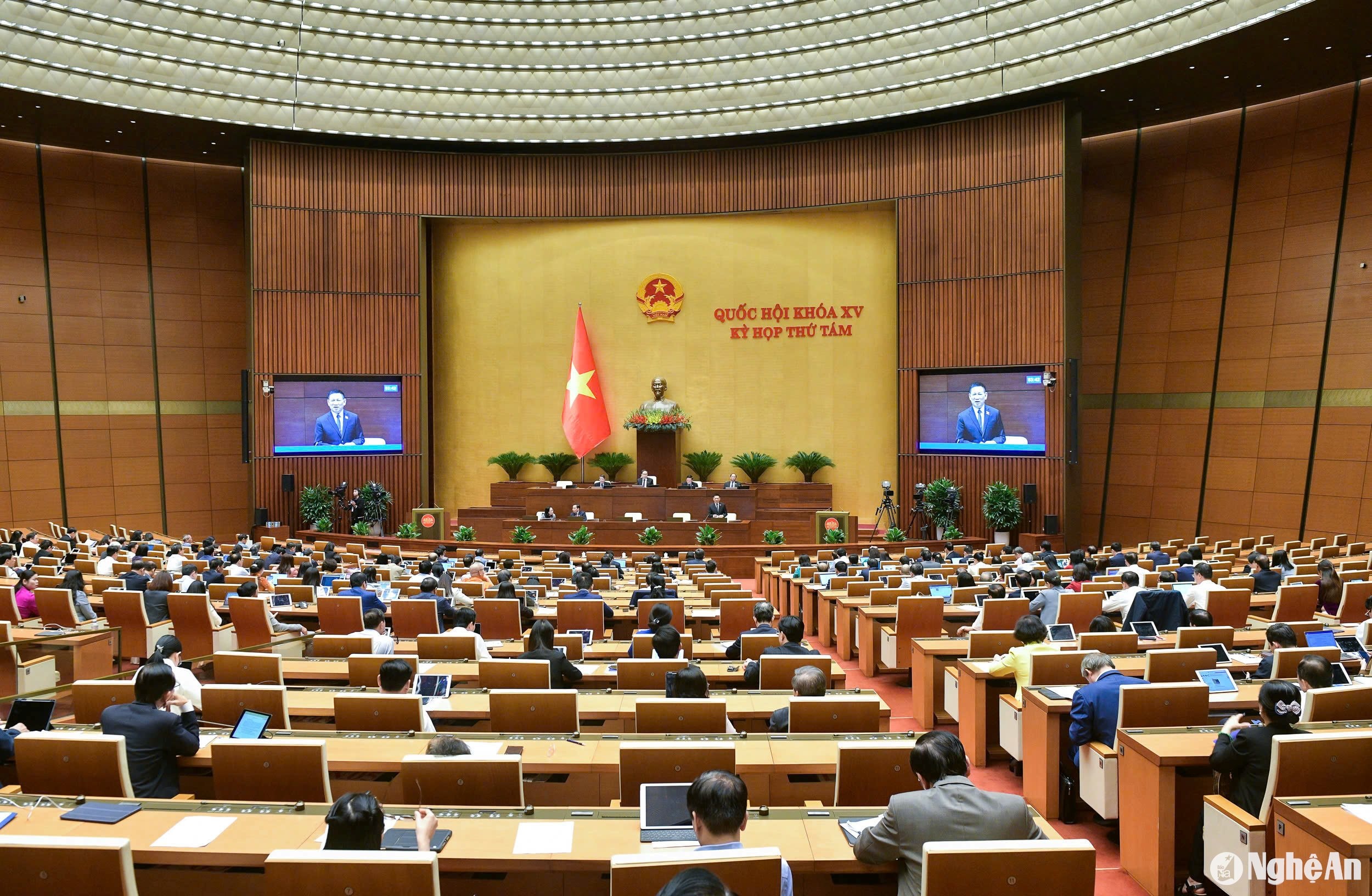
Agree to socialize the activities of building, disseminating and applying standards.
Agreeing on the necessity of amending and supplementing a number of articles of the Law on Technical Standards and Regulations, Ms. Thai Thi An Chung - Member of the Provincial Party Executive Committee, Deputy Head of the Delegation of National Assembly Deputies of Nghe An spoke and discussed and gave comments on a number of contents to further improve the legal corridor in the field of technical standards and regulations.
First of all, the delegate of Nghe An highly appreciated the draft Law for adding provisions on the socialization of construction activities, dissemination and application of standards and considered this a strategic step of special importance in the context of limited State resources and diverse market needs.
“The socialization of standards development, dissemination and application activities will create a new wave, attracting resources from the private sector to standards and technical regulations activities, contributing to improving the quality and suitability of standards with production and business practices,” said Ms. Thai Thi An Chung.
.jpg)
However, according to the delegates' comments, the concretization of the socialization policy in the draft Law is still vague, only stopping at expanding the subjects allowed to participate in giving opinions on the process of building Vietnamese standards.
Therefore, delegates proposed to study the establishment of two types of standards: National Standards (TCVN) and Association, Industry and Trade Standards (TCH) according to the principle: TCVN is developed by the State, focusing on standards related to national defense and security, while other fields requiring conformity certification are given the authority to be directly developed and issued by Associations and Unions.
At the same time, it is necessary to clearly stipulate the conditions for Associations and Unions to develop standards, manage the standard certification program and the procedures for issuing TCH; establish a mechanism for Associations and Unions to have enough tools to monitor the quality of goods and products through accepting Association and Union standards and allowing Associations and Unions to be qualified to issue product standards and manage product certification programs. The State protects TCH through confirming copyright for TCH.
Delegate Thai Thi An Chung proposed that in the promulgation of standards and regulations, in addition to paying attention to specific factors, it is necessary to ensure the principles of promulgating legal documents.
Consider promulgating an appropriate number of national technical standards and regulations.
The Deputy Head of the Nghe An National Assembly Delegation also requested that the drafting agency continue to conduct research to identify criteria for which new products and services need to be managed by standards and regulations in order to reduce the time and costs required to issue a large volume of documents.
At the same time, it is also necessary to clearly identify and distinguish between technical standards and regulations and business investment conditions to ensure consistency and non-overlap between the Law on Technical Standards and Regulations and the Investment Law. Because through research reports in the draft Law dossier, it shows that the number of national technical standards and regulations is currently very large.
On the other hand, according to the reflection of some enterprises and associations, products with technical standards have been produced in factories with facilities and production processes that have been assessed and recognized by competent authorities as qualified according to the provisions of law, meeting national and international standards... but must declare conformity for each product before being allowed to circulate.
According to delegate Thai Thi An Chung, the regulation on declaring product conformity before being allowed to manufacture and trade products is redundant and formal. Because in order to declare product conformity, the designated organizations have to go to the factory to assess the facility, production process and take samples for testing (meaning redoing the work of the organization that assessed and recognized the facility as qualified for production and trading).
On the other hand, the regulation that products with technical standards must be declared when in circulation has forced 100% of imported product shipments to only complete customs clearance procedures and be allowed to circulate when there is a declaration of conformity.
This has created a problem that 100% of imported goods must be inspected for quality before being allowed to clear customs, while most countries in the world apply post-inspection or mutual recognition or random inspection with a frequency of no more than 5% of imported goods. In addition, businesses have to spend more money on waiting time for procedures and storage costs, etc.
Therefore, the delegates proposed that the Government summarize and further evaluate the implementation of the provisions in Article 48 of the current Law and listen to feedback from businesses, unions and associations to amend and supplement accordingly.
.jpg)
Also related to the draft Law, delegate Thai Thi An Chung proposed to agree with the addition of regulations on "unilateral recognition of conformity assessment results" of international and foreign organizations.
“I think this is a step in the right direction, helping to remove difficulties in production, business, import and export of enterprises in the current situation, especially for some emerging technology fields that domestic resources cannot meet, contributing to improving the competitiveness of Vietnamese products in the international market,” the delegate expressed his opinion.
However, to ensure the effectiveness of this regulation, she said that it is necessary to study and supplement specific regulations, including: Building a close coordination mechanism between relevant ministries and branches to ensure consistency and effectiveness in the implementation process; investing in improving the capacity of domestic conformity assessment organizations, in order to shorten the gap with international organizations and facilitate mutual recognition. In addition, there should be a mechanism to regularly monitor and evaluate the effectiveness of the application of regulations, to promptly adjust and supplement if necessary.

